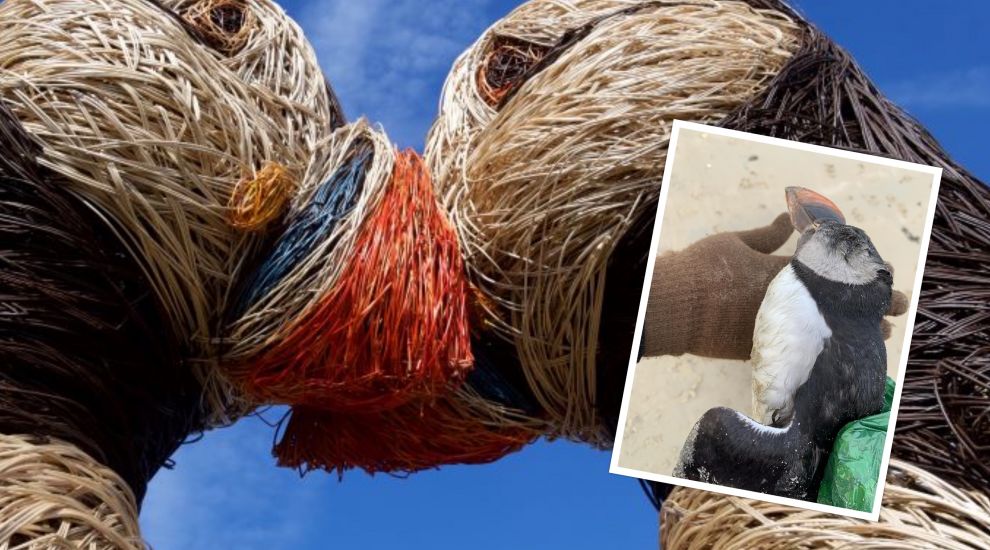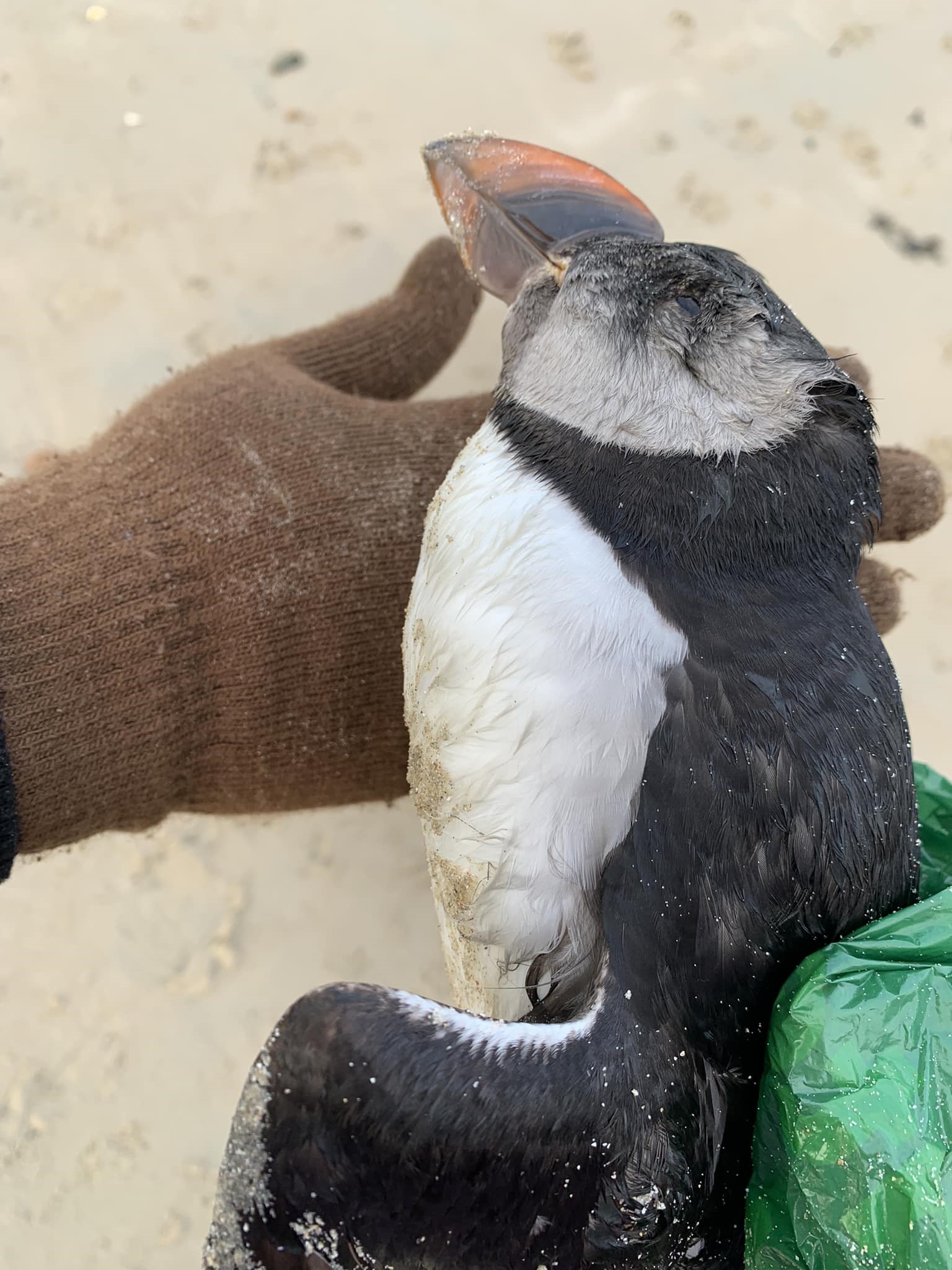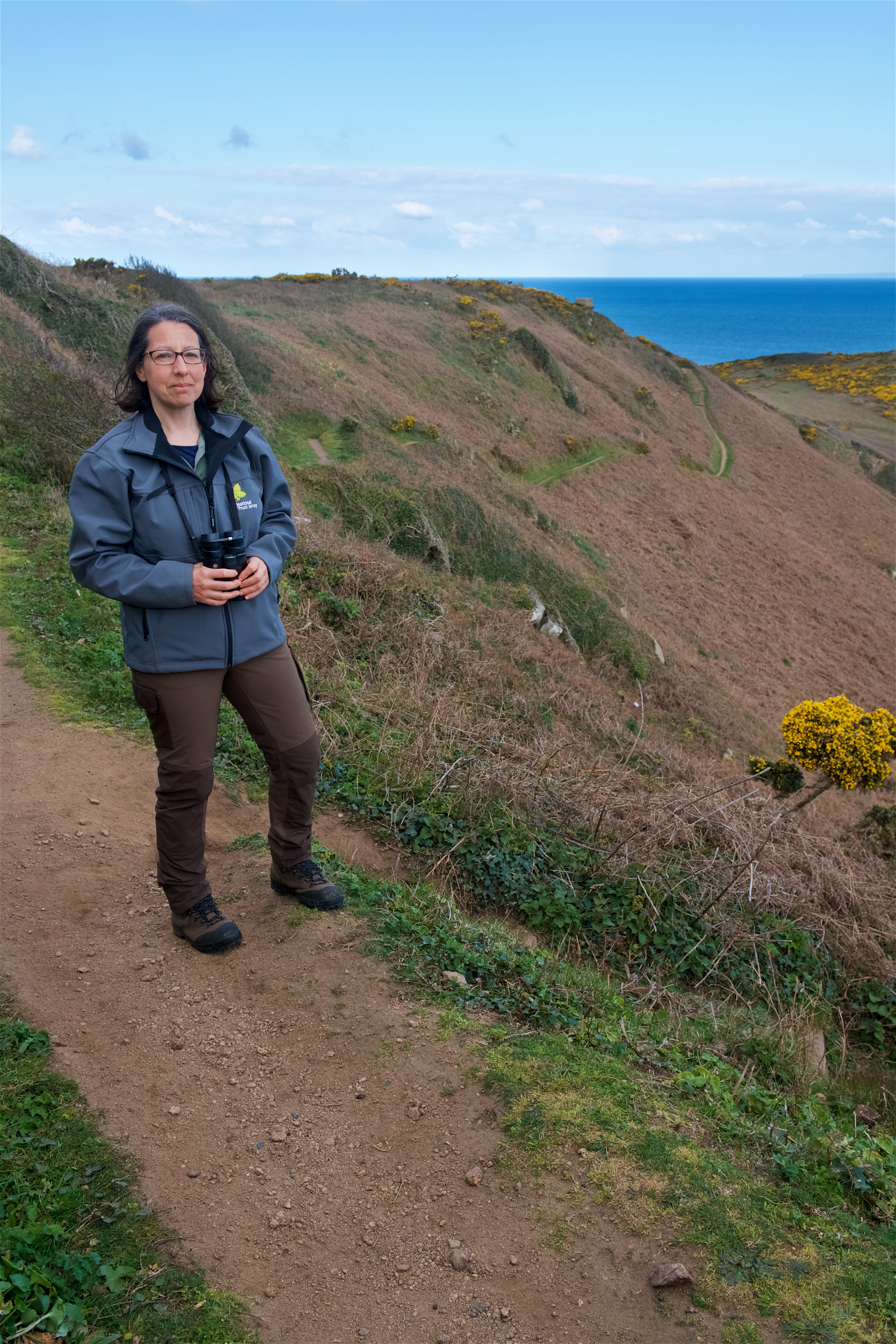


More than 100 dead seabirds – including three puffins – have sadly washed up on Jersey's shores this winter amid struggles with stormy weather and finding food.
Cris Sellarés is Project Officer for Birds on the Edge, which keeps records of dead birds found every winter, from November to February.
The increase in dead seabirds is due to back-to-back storms churning up the sea, she explained, along with overfishing and pollution affecting the availability of fish.
"It's very difficult for the to find fish when the water has been churned.
"Obviously the storms are coming more frequently and are stronger."
Over 100 birds have been found dead this year, she said, adding that in other years she would expect an approximate range of around 20-40 carcasses.
"This winter, there seems to be loads."
The main species affected appear to be cormorants, razorbills, European shags and guillemots.
However, concerningly, three puffins were among those to wash up more recently.
Each was reported on the Jersey Wildlife Facebook page, which is monitored by the Birds on the Edge Group.
While there are puffins in the Channel Islands, Cris explained that these birds could have come from colonies "anywhere in the Atlantic".

Pictured: A puffin found dead in January 2023, which islander Vanessa Heath posted to the Jersey Wildlife group - helping with the monitoring of dead birds (Vanessa Heath)
"The fact that they show up in Jersey just reflects the currents this time of year," she said.
She added that it would only be possible to assess the health of Jersey's resident birds once they return in the spring.
There are four breeding pairs of puffins left in the island, compared with hundreds of pairs a century ago. They are often found between Plémont and Grève de Lecq from March to July.
However, the species is threatened by invasive predators such as feral ferrets and rats.
Reflecting on the flurry of activity over the winter period, Cris praised islanders' efforts signalling dead birds and looking for rings.
Jersey's eight resident puffins don't have rings, but finding a ring will allow them to locate the person who ringed the bird – and by extension, their place of birth.

Pictured: Cris Sellarés monitors bird populations and how many perish over the winter. (Rob Currie)
"People are already doing a good job reporting them on Facebook", she said.
"I think people are really clued up on reporting. They check for rings, which is really useful."
Oil from ships – released in small doses, rather than in oil spills – also presents a danger, she said.
"It attaches itself to the feathers of the bird – those feathers keep them warm and waterproof."
A bird covered in oil can't fly and struggles to fish or even stay afloat.
If they are alive when they are found, the JSPCA can clean them and even has tubs of water to test whether they can float again.
Cris added that it was "difficult to tell" if wind farms were a factor, but that the pictures she had seen were not consistent with the trauma injuries she would expect to see from a wind turbine.
"It is consistent with storms, with the effect of storms.
"We have had lots and lots of storms, and lots and lots of birds washed up undernourished and dead."
Any bird that is found alive and struggling should be signalled to the JSPCA on 724331 or at 07797 720331 for out of hours.
Some dead birds need to be flagged to the Environment Department at 441600 or online.
Birds that should be signalled to the department are:
1 or more dead owl or bird of prey
3 or more dead wildfowl (swans, geese, ducks), seabirds, and gulls within close proximity of each other
5 or more dead birds of any species within close proximity of each other
Pictured - top: The puffin statue at Plémont was installed in 2022. (Jon Guegan)
Comments
Comments on this story express the views of the commentator only, not Bailiwick Publishing. We are unable to guarantee the accuracy of any of those comments.